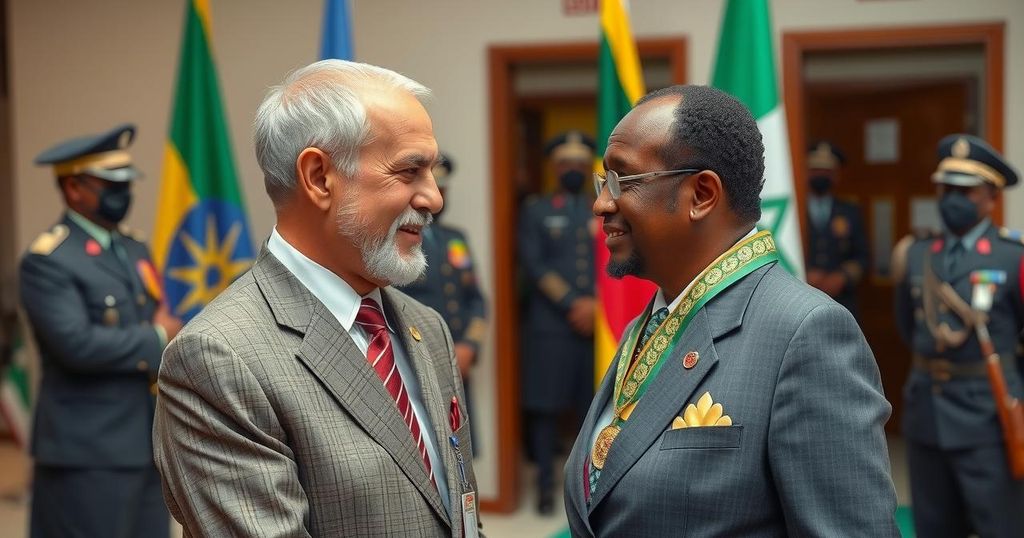Ethiopian Defence Minister Aisha Mohammed Mussa’s visit to Somalia marks an attempt to mend relations that worsened due to Ethiopia’s naval base plans in Somaliland. The visit occurs amid threats from Somalia to expel Ethiopian troops, vital in combating Al-Shabaab. A recent agreement suggests steps towards resolving disputes, underscoring the intricate geopolitical dynamics in the Horn of Africa.
Ethiopia’s Defence Minister, Aisha Mohammed Mussa, visited Somalia on Thursday, marking the first bilateral visit since diplomatic relations deteriorated over a controversial Ethiopian plan to establish a naval base in the breakaway region of Somaliland. Somalia’s state minister for foreign affairs, Ali Omar, confirmed the visit but did not disclose its purpose. Tensions between the nations have heightened due to Ethiopia’s military presence in Somalia, where approximately 10,000 Ethiopian troops operate against Al-Shabaab militants. Somalia has threatened to expel these troops unless Ethiopia withdraws from its agreement with Somaliland, which seeks to lease coastal land for military and commercial developments in exchange for potential recognition of its independence.
The degradation of relations came after Ethiopia and Somaliland reached a preliminary agreement concerning this proposal, prompting concerns in Mogadishu about Somaliland’s aspirations for autonomy. After prolonged hostilities and ineffective international mediation, an agreement was reached on December 11 in Turkey, paving the way for technical negotiations to resolve the ongoing disputes by February. Ethiopia’s military presence is part of a broader African Union peacekeeping mandate, and any withdrawal could jeopardize efforts against Al-Shabaab, which has been engaged in an insurgency since 2007. The dispute also resonates within the Horn of Africa, intensifying Somalia’s ties with Ethiopia’s regional rivals, Egypt and Eritrea.
The diplomatic relations between Ethiopia and Somalia have been fraught with challenges, particularly due to Ethiopia’s involvement in Somaliland, a semi-autonomous region that has sought recognition since declaring independence in 1991. While Somaliland operates with a degree of autonomy, the international community does not formally recognize it, leading to tensions with the Somali central government. Ethiopia’s plans to establish a naval base in Somaliland have further complicated the relationship, prompting concerns of territorial aggression from Mogadishu. Amidst escalating tensions, international mediation has played a crucial role in striving for dialogue, but the situation remains precarious due to underlying geopolitical dynamics within the region.
The recent visit by Ethiopia’s Defence Minister to Somalia signifies a potential thaw in tensions between the two nations, following a year of strained relations over the contentious naval base agreement with Somaliland. The situation remains delicate, with ongoing negotiations aimed at addressing the issues that led to a breakdown in talks. The presence of Ethiopian military forces in Somalia remains vital in the fight against extremist threats, highlighting the complex interdependencies in the Horn of Africa. Continuous diplomatic efforts will be essential to maintain stability and promote collaborative resolutions to the disputes that persist.
Original Source: www.newarab.com






